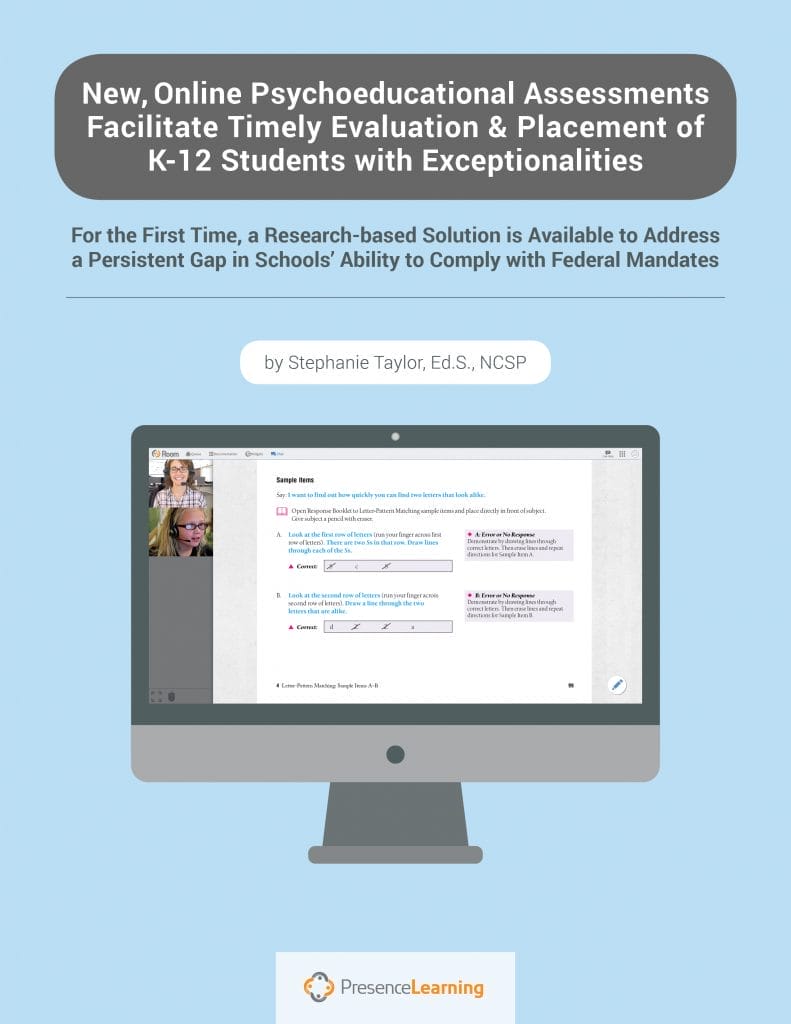
Assessments keep most school psychologists busy all year, causing periodic overload and backlog situations. Schools do their best to evaluate referred students without undue delay but often find themselves falling behind. Student needs go unaddressed, putting them at even greater risk of low achievement, and putting the school at risk for compliance.
Serving students with special needs is an ongoing process of evaluating their needs, providing the necessary interventions, and then reevaluating the effectiveness of said interventions. If evaluations are delayed, the entire process gets thrown off. Staff vacancies due to family/medical leaves or retirements, the nationwide shortage of school psychologists, the growing volume of behavioral issues, seasonal spikes in student referrals for evaluation, and other complications all affect a school’s ability to evaluate students in a timely fashion.
But how big is the problem? The National Association for School Psychologists (NASP) recommends one school psychologist for every 400-700 students, yet the national average is one school psychologist for every 1,653 students – and in some areas, schools exceed the recommended ratio by up to 10 times. Because of this, too many students receive delayed services, too many school psychologists burn out, and too many schools need more options for providing student assessments.
Live, online delivery of therapy services—also known as telehealth—has proven to be an effective way to provide school districts with access to experienced speech-language pathologists, occupational therapists, school social workers, and school psychologists—all professions with national and regional shortages. Telehealth is also an effective modality to administer assessments when done with fidelity.
However, teletherapy assessment has been slow to incorporate psychoeducational assessments because they are more sensitive to administrative and environmental variance. Because psychoeducational assessments are so crucial to the success of students, Dr. A. Jordan Wright, a third party researcher, designed a study to demonstrate that remote administration of the Woodcock-Johnson IV® (WJ IV) Cognitive and Achievement batteries published by Houghton Mifflin Harcourt (HMH) yields an equivalent distribution of results as onsite administration.
For the study, students were randomly selected from four partner school districts in order to collect a representative sample size and demographic. The 240 participants aged 5 to 16 were then split into two groups of equal number and students were matched on age and gender. The participants were randomly assigned to one of the two groups – either traditional (onsite) or online (remote) – and took the cognitive and achievement portions of the WJ IV. For the remote group, HMH permitted PresenceLearning to digitize the complete contents of the WJ IV Cognitive and Achievement batteries. At the end of the equivalency study, the data revealed that when administered with fidelity, the online delivery of the WJ IV Cognitive and Achievement batteries was just as effective as the traditional format.
So what does this mean for schools? Remote administration of the WJ IV is a viable way for all schools to expand their psychoeducational assessment capacity. Delivering assessments online can also address problems such as staffing shortages, referral spikes, or medical/family leaves. The field of online assessments will continue to expand as more publishers, different types of assessments, and various administration methods follow in the steps of this WJ IV equivalency study. Remote, online administration of psychoeducational assessments can help today’s students achieve their academic goals—and succeed in life.
Learn more about the WJ IV equivalency study in this white paper or watch this video to see how the tests can be administered.




